Green Hanga’s Journey: From Clay Stove Workshop to Cleaner Cooking in Rwanda
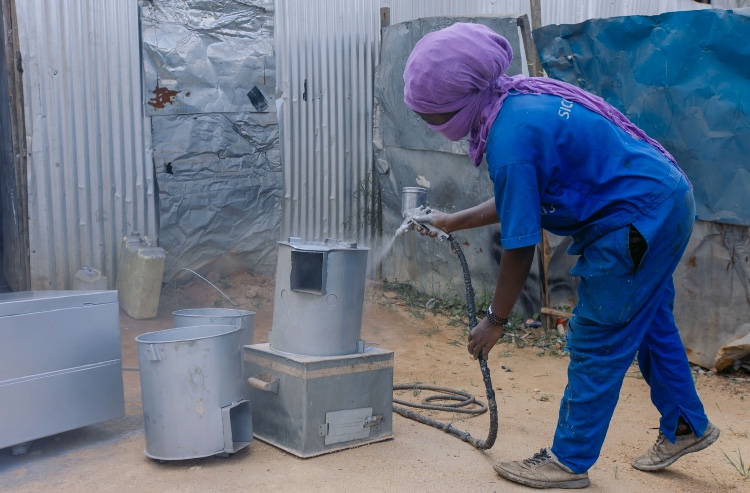
In a small workshop in Gasabo District, Jean Bosco had a clear goal—help Rwandan families cook more efficiently, save on fuel, and avoid smoke-filled kitchens. That workshop eventually grew into Green Hanga Ltd, a company now recognized across the country for its cleaner cooking solutions.
What started as a simple clay stove operation has turned into a business that has delivered over 46,000 improved cookstoves to homes in Rwanda. These stoves are designed to use less firewood, produce fewer emissions, and reduce the health risks of cooking indoors.
Green Hanga’s growth was supported by the ReCIC project (Reducing Climate Impact of Cooking in Rwanda through Improved Cooking Energy Systems Action), an initiative led by SNV and GIZ, with funding from the European Union and BMZ.
Jean Bosco registered Green Hanga Ltd with the Rwanda Development Board in 2014. Like many small manufacturers, the company faced obstacles early on—limited equipment, technical gaps, and no access to certified markets.
“We had the passion and the vision,” recalls Jean Bosco, Green Hanga’s Managing Director, “but we lacked the marketing knowledge to compete for government tenders. Without certified products, we could not even bid on the opportunities that could have transformed our business.”
Through ReCIC, Green Hanga received business development support, technical training, and performance-based grants under the Cooking Energy Business Grant Fund (CEBGF). Out of 14 businesses initially selected, 12 remain in the program. All are part of the Energy Private Developers (EPD) network.

Green Hanga’s support package included training in planning and marketing, new equipment, raw materials, and a three-wheeler to help with stove distribution.
“With project support, Green Hanga was able to develop and certify their flagship Vuba 02 stove as a Tier 3 product by the Rwanda Standards Board—a mark of high efficiency and low emissions that opened doors to new markets,” EPD affirms.
The company was then able to import raw materials and increase production capacity. As business picked up, so did the real impact—households using Green Hanga stoves now use up to two-thirds less firewood. The savings are meaningful, especially for families who spend a large share of income on fuel.
“But the real measure of success is not in the workshop—it is in Rwanda’s kitchens. Green Hanga’s stoves reduce firewood consumption by up to two-thirds, translating to real savings for families, who previously spent significant portions of their income on fuel. The health benefits are equally compelling. The smoke-free stoves eliminate or reduce indoor air pollution compared to the traditional three-stone fire, particularly benefiting women, who do most of the cooking in Rwandan households,” EPD highlights.
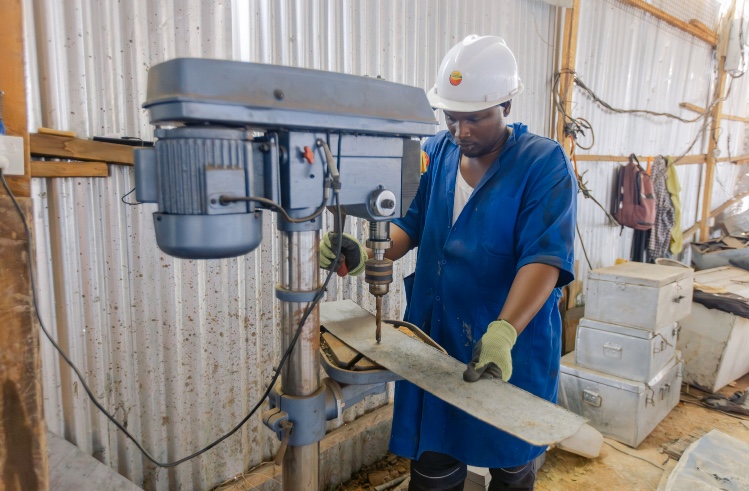
Gasabo District resident Josiane has used the Vuba 02 stove in her kitchen and says it’s made a noticeable difference.
“I use much less firewood now, and my meals are ready so much faster,” she explains. “What I love most is that the smoke has reduced. My kitchen is not filled with smoke anymore.”
Green Hanga has also gained access to local credit and built a stronger internal team. Business skills acquired through the project have helped the company manage growth and become more self-reliant.
“We sincerely thank the ReCIC Project for their continuous support,” says Jean Bosco. “To other development partners—you are welcome to join us. And to our customers—our stoves will save your fuel and your time.”
A Wider Reach
Since receiving support, Green Hanga has distributed over 16,000 of its Vuba 02 stoves in districts like Gasabo, Nyagatare, and Nyabihu. Another product, the Cana Rumwe stove (a Tier 2 model), has reached over 30,000 households and institutions like DUHAMIC and REDO, which work on clean cooking and rural development in regions including Karongi and Ngororero.
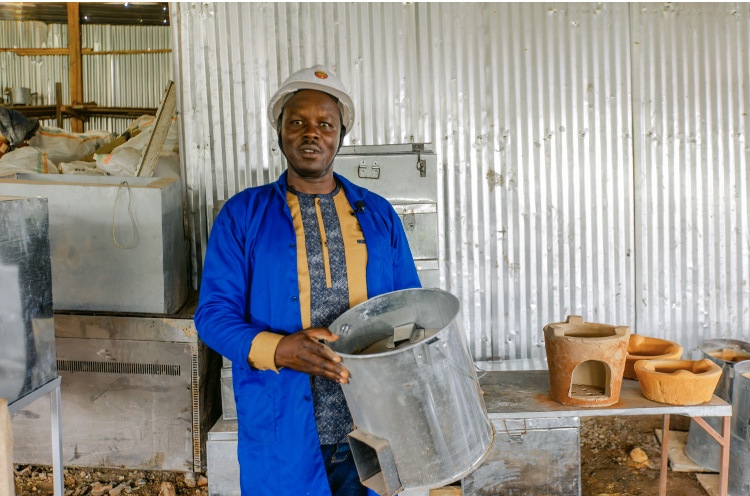
The company has grown its full-time team from two to six and hired around 500 temporary workers between 2022 and 2025 to support production and delivery.
Globally, about 2.3 billion people still rely on traditional cooking methods that contribute to indoor air pollution and environmental harm. In Rwanda, about 80% of households still depend on firewood. As of April 2025, ReCIC-supported businesses had collectively sold over 449,000 improved cookstoves to households across the country.
Looking Ahead
Green Hanga’s story reflects what’s possible when local ideas get the right kind of support. It’s also a reminder that clean cooking isn’t just about technology—it’s about reducing health risks, saving time and money, and helping communities breathe easier.
As clean cooking continues to gain attention globally, there’s growing need for policies and funding that enable local businesses to scale up. Partnerships between governments, development organizations, and private actors can help drive that shift.
The example set by Green Hanga is one that can be replicated elsewhere. A cleaner stove in every kitchen isn’t just a development goal—it’s a matter of public health, climate action, and economic fairness.
Related Articles
Strengthening Rwanda’s SMEs for Circular Food Systems: Embedding Circularity Beyond Project Implementation for Long-Term Transformation
As Rwanda advances its circular economy ambitions, small and medium-sized enterprises (SMEs)...
Powering Food, Restoring Land: How Renewable Energy and Regenerative Agriculture Are Transforming Rwanda’s Farms
Across Rwanda’s rolling hills, a quiet revolution is underway. It begins in...
Late February Weather Alert: Heavy and Above-Average Rainfall Forecast Across Rwanda
The Ministry in charge of Disaster Management (MINEMA) has issued a weather...
GBOX Launches AI Literacy Initiative to Support Rwanda’s Digital and Sustainable Development
A new Artificial Intelligence (AI) literacy program has been introduced last week...






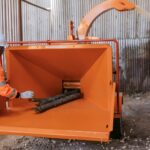
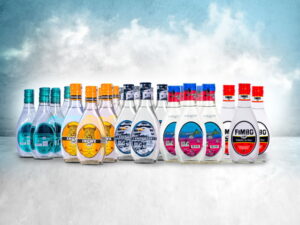
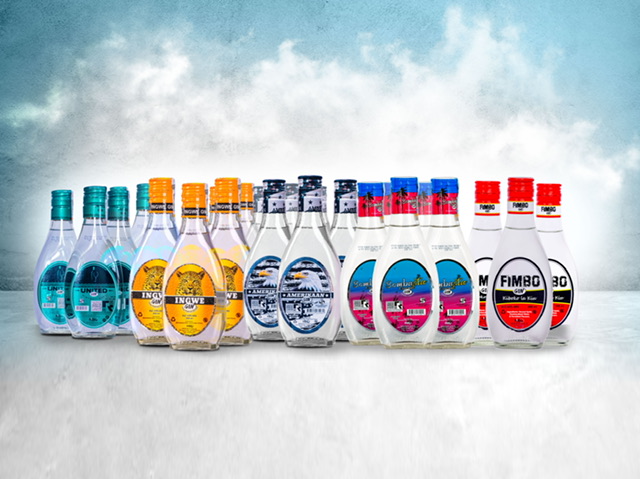
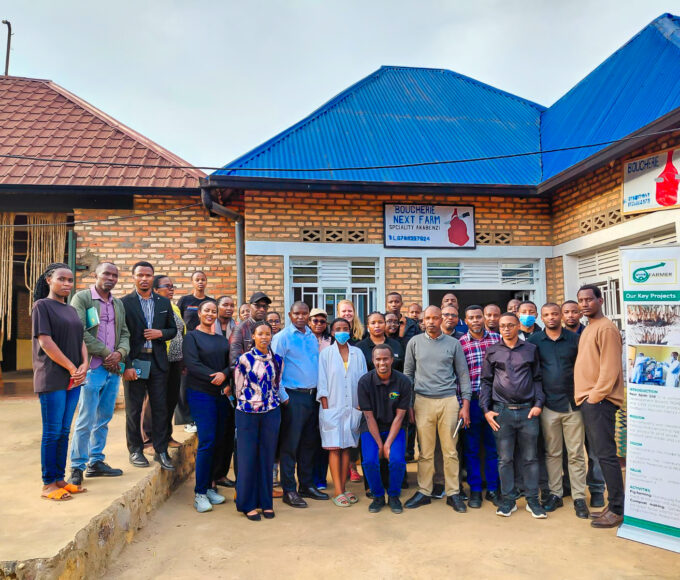


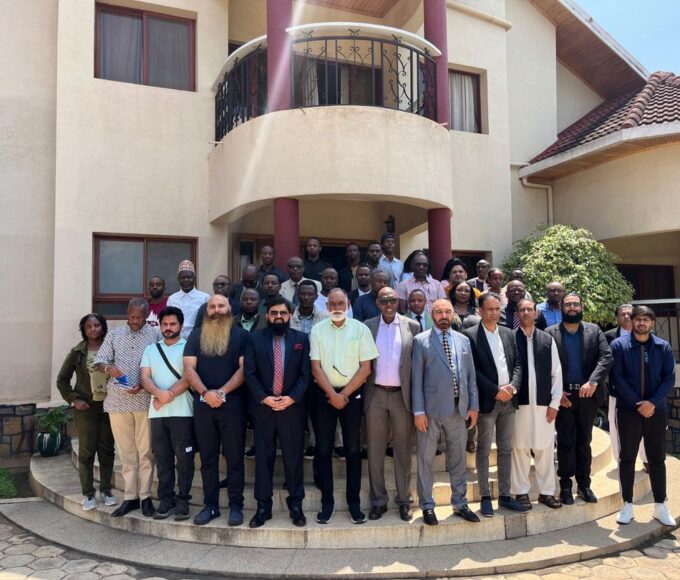
Leave a comment